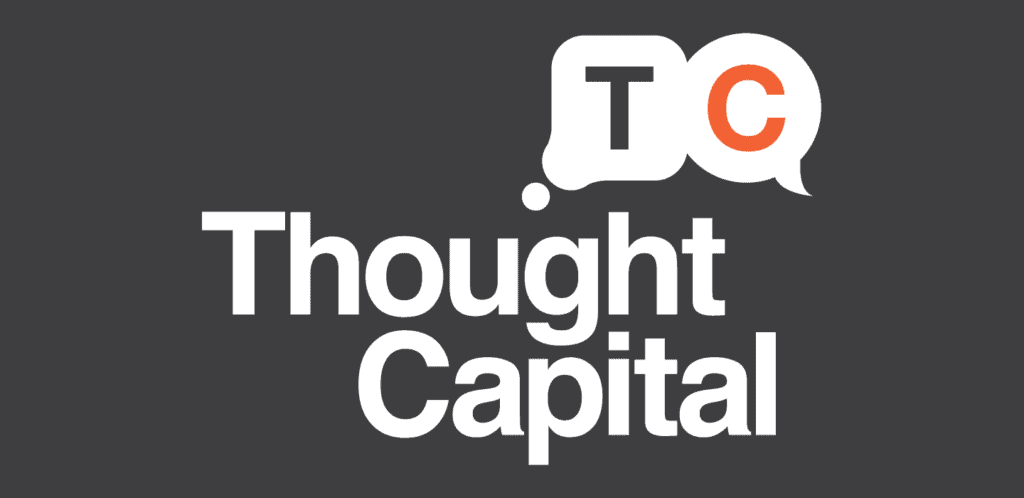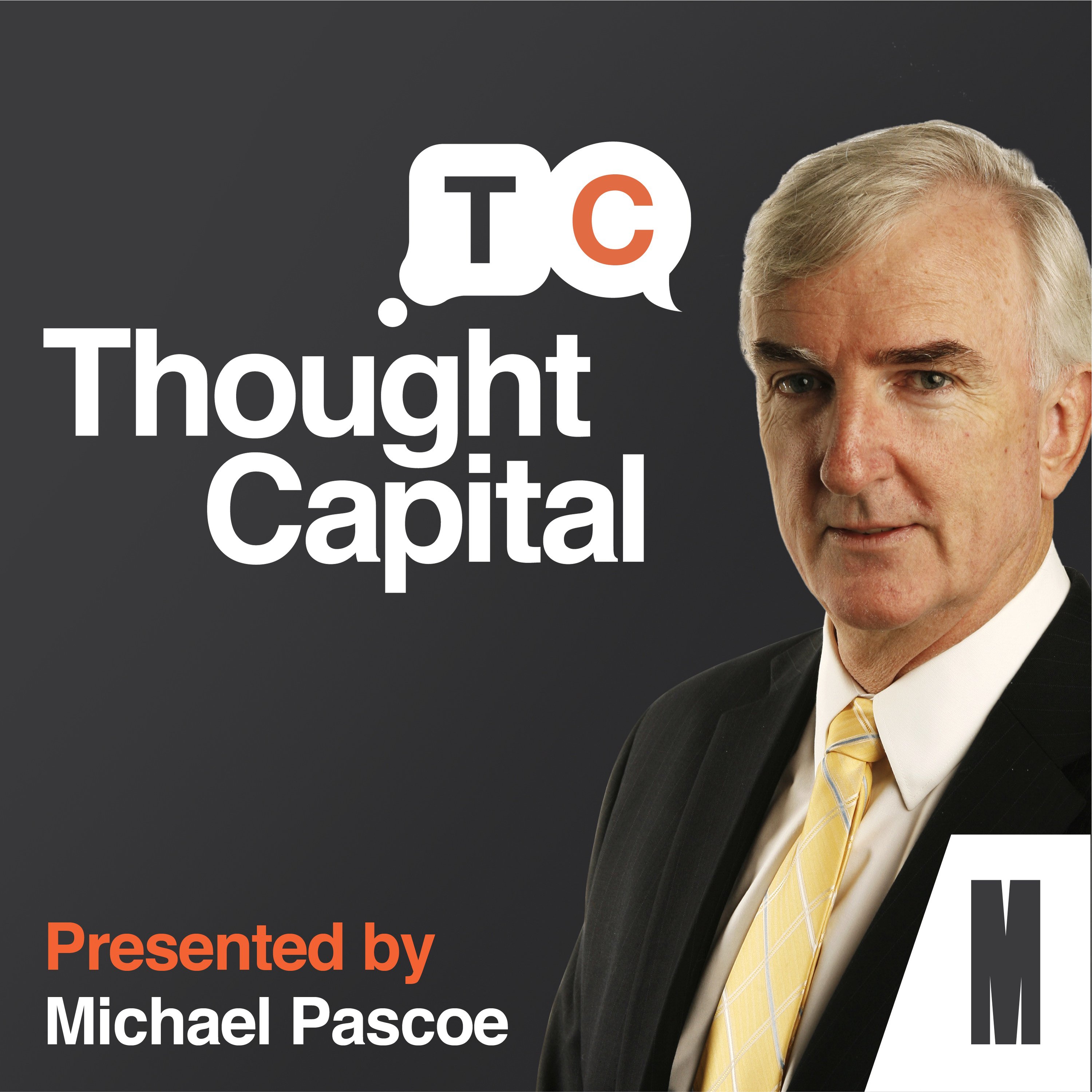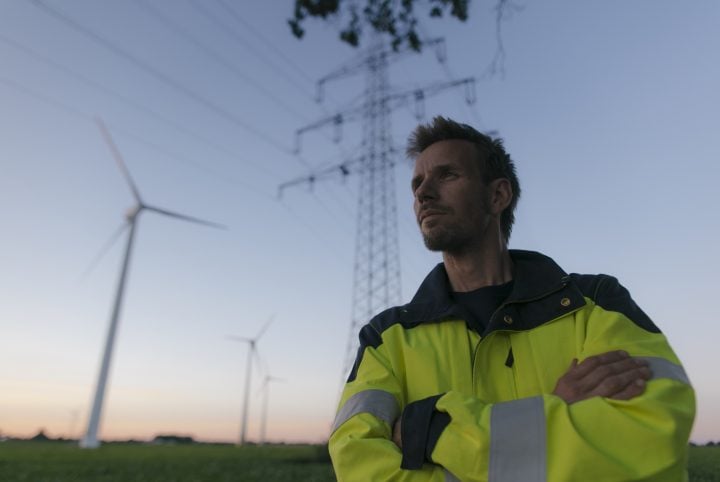Michael Pascoe: Welcome to Thought Capital, the podcast that delves into the wealth of ideas created by the experts at Monash Business school in Melbourne, Australia.
Donald Trump: Are you running? Are you not running? I am officially running for President of the United States.
Michael Pascoe: We know this voice all too well.
Donald Trump: I will be the greatest jobs president that God ever created. We need a leader that wrote The Art of the Deal.
Richard Hall: How do we understand the Trump phenomenon? I think we understand that through the prism of the deal, and he can do a better deal than the other guy. And that’s the way in which you need to understand everything that Trump does.
Michael Pascoe: When Donald Trump, the property magnate and reality TV show host, became President of the United States, the liberal world fell into a state of disbelief that someone with such a mocking tone, politics of intolerance and disregard for facts could be elected to such an important post. As time has passed, we’re getting more and more used to his style of leadership, no matter how controversial his latest tweet might be. So, to what extent is he a leader of our time? What can we actually learn from his leadership?
Michael Pascoe: Someone who spent his career teaching, analysing and researching different kinds of leadership is Monash professor and Deputy Dean, Richard Hall. Professor. Hall, welcome to Thought Capital.
Richard Hall: Thanks, Michael.
Michael Pascoe: What is a leader?
Richard Hall: Well, a leader is someone’s who is constructed to be the leader. So there’s nothing essential about leaders or leadership, they just happen to be attributed to that role and expected to perform as a leader or in a leadership role in an organization or in some instances for a party like the United States. So they’re constructed as much as they really are essentially anything at all. Part of my kind of thinking about leadership is the construction of leadership rather than it being essentially anything in particular.
Michael Pascoe: Well, has Trump got a particular leadership style? An identifiable style?
Richard Hall: Oh, no doubt. I think that Trump is fascinating when it comes to the question of leadership style. I don’t know how deliberate it is, but certainly if we think about it, there’s elements of populism, a heavy dose of charisma, a capacity to identify in an emotional way, certainly with his supporters, to generate strong emotional reactions, is really quite distinctive. He’s grandiose, he’s capricious I think in the exercise of his power. But there is something that is often labelled, I guess, a degree of authenticity about Trump, which is kind of interesting in the sense that whatever you might say about Trump, you wouldn’t deny that he’s being kind of honest. Almost recklessly honest with his views. So there’s no attempt to try and gild the lily or develop or hide anything. He’s really quite open, I think, in many of his views. So, there’s no accusations of political correctness about Trump, that’s for sure.
Michael Pascoe: But there’s a conundrum in there. He is being honest about his views which may well be lies.
Richard Hall: That’s right. Well, there’s certainly fabrications. I mean, most recently, certainly these sites that attempt to document that counted over 2,000 in a 12 month period of fabrications or mistruths that he was certainly telling. But the fact at the moment he might believe those things to be true, there is definitely a possibility. So he’s certainly unguarded, I think, and very open in that way about his attitudes and what his beliefs appear to be.
Michael Pascoe: And obviously that has struck a chord with enough Americans to become President of the United States. So, that style of leadership can be successful.
Richard Hall: Oh, there’s no question it can be successful, and I think it’s about the cut through that he’s managed to achieve in the current political, social, cultural and economic climate of the United States. So I think in some ways, Trump is the leader of his times in the sense that the conditions in the United States have made someone like Trump absolutely possible. And that has economic dimensions to it which are absolutely critical here. He’s a story about increasing inequality in the United States and the resentment of a large part of the population for contemporary political elites, and the political process.
Richard Hall: You’ve got to realize that the level of distrust that Americans feel for D.C., the beltway, the political system, Congress. I mean, Congress’ approval rating in the United States at the moment is between 15 and 20%. That is incredibly low. So that level of distrust for established political elites and institutions is absolutely what Trump traded off. He was absolutely able to distinguish himself and contrast himself with Hilary Clinton on that basis so successfully.
Richard Hall: Now those economic conditions of increasing inequality. The dimensions of it, Michael, let’s not forget. If you go back to 1980, the top 10% of the U.S. got 35% of the U.S. national income. Now, in 2015 at least, the top 10% of the U.S. is earning the top 50% of the income. 90% majority has slipped from 65% of national income to less than 50%. That is the dimension of increasing inequality in the States. And that resentment has fed a desire for change and someone different.
Michael Pascoe: Well, they’ve certainly got someone different. That his policies would probably exacerbate that inequality is rather strange.
Richard Hall: Well, that’s right. But this is not a phenomenon which can be explained in a rational policy basis. People did not vote for Trump because of his policies but because of what he wasn’t. I remember one of the really telling quotes I heard from a voter when I was prior to the election, and they said, “I’ll vote for Trump. I don’t like Trump, but I despise Clinton.”
Michael Pascoe: We could stray off here into aspects of the media and the way that particular view was fed, the way Trump played the media in terms of his style of leadership with modern communication, with social media. Has he got precedence from earlier times, before Twitter?
Richard Hall: Yeah, perhaps. I mean, what Trump does strike at is a certain unmediated directness, which he has. And his capacity to be a politician of his time and a creature of Twitter, don’t forget the rather old fashioned political rallies where he would speak directly to members. And the number of rallies that he did participate in and continues to participate in is quite phenomenal. But in the sense of him being able to convert that populism under cultural conditions of the contemporary nature of media, what we’re talking about a seven second capacity here. That’s the bite size that we’re working with these days. And if you think about it, in seven seconds you can say, “I will make America great again.” And then the applause. That’s seven seconds.
Richard Hall: So it’s a beautifully simplistic message which is perfectly crafted for the contemporary media cycle. And then don’t forget as Simon Sinek says, “People don’t listen to television anymore, they watch it.” And so that image of an apparently larger than life, flamboyant character there who can capture your attention, whether you like it or you don’t, and say something in seven seconds, and that’s all you want to hear. It has no substance to it. It has no meaning to it. But it is able to capture the imagination quickly and mark a point of departure from the established elites.
Michael Pascoe: Which is made for populism.
Richard Hall: At the heart of it is populism. I think that that is. I mean, there’s a debate as to the extent to which you can argue that Trump represents a populist political style, but I think he does more so yes than no. Populism, don’t forget, is all about trying to construct yourself as representing the undiluted will of the people. And that you therefore simple … and it’s impossible of course to have the undiluted will of the people, but you can construct yourself as being able to embody that and encapsulate that and enunciate that and articulate it in ways which are appealing. And those ways need to be very, very simple.
Richard Hall: So what Trump does, of course, is always trade in these binaries. Good or bad. Virtuous or evil. Right or wrong. Black or white. We know the realities of politics and political life, economic circumstances are complex and complicated. There’s shades of grey. But he doesn’t trade in shades of grey. He keeps it very, very simple so it can be easily articulated. And you’ve always got someone to blame.
Richard Hall: So the other bit about populism is the necessity to be able to be negative, because that’s entirely flexible. So you’re not so much standing for something as standing against something. And it’s immigrants that you can blame for taking your jobs, and you can make that a very, very simple argument that people think, “Great. We’ve got someone to blame. We’ve got someone who recognizes that, who articulates that. I can identify with that.” That’s the heart of populist appeal.
Michael Pascoe: Paul Krugman has tweeted, the appropriate medium, that Trump has gone a step beyond. That he now invents problems the United States doesn’t have.
Richard Hall: Yeah, and I think this notion on inventing problems that you don’t have is a very interesting strategy. One of the ways that we can think about Trump is as a transformational leader. And transformational leadership has been one of the most dominant theories in leadership studies for the last 20 or 30 years. Transformational leadership is all about being able to inspire and appeal to people to emotionally move them. Contrasted often with transactional leadership, you do something in exchange for something else.
Richard Hall: So the transformational leadership, heavily imbued with ideas around charisma and charismatic. What was observed when that theory was created, that transformational leadership could be used for evil as well as good. In response to that, Bass and Steidlmeier wrote a paper with a attempt to contrast genuine transformational leadership with pseudo-transformational leadership.
Richard Hall: And one of the dimensions of transformational leadership that distinguishes pseudo-transformational leadership is this notion of actually inventing and creating crises or problems which don’t exist in order to justify the actions of the leader. And I think we see this quite brilliantly demonstrated by Trump and the most classic example being immigration and mixing immigration as a justification for building the wall, when of course that’s creating a problem where there’s historically low levels of legal immigration from Mexico. Yet creating that in order to justify his policies.
Michael Pascoe: Pseudo-transformational leadership doesn’t fit as well in a tweet as populism does.
Richard Hall: No, it doesn’t.
Michael Pascoe: Is populism inherently a bad leadership style? Or can you jump on the bandwagon for a good ends?
Richard Hall: I think the issue with populism and what makes it potentially so corrosive is the fact that populism really, at its heart, is about purporting to represent the undiluted will of the people. So the problem with populism is that whereas the reality of political life, political reality, and economic conditions is one of complexity and subtlety and compromise, those things are hard to explain and hard to justify. Populism wipes all that away with a simplistic response that people can easily identify with.
Michael Pascoe: And is that really what makes it so dangerous in the extreme? That blaming other people for a problem that is complex?
Richard Hall: It does, at its heart, then promote a degree of divisiveness and division and separation. So you’ll often find that there is us and them. So the whole idea about making America great again, and that seems to involve protectionist policies and opposition to immigration. It simplifies and identifies that there is a group of us, and that is very often appealing to those demographics about white males in the U.S. in particular who have been disenfranchised with the nature of globalization, political transformation, and change. In increasing inequality, they’re the victims. To encourage that victim mentality, to hunker down, to become increasingly defensive. And I think that those are corrosive political values and political forces, no question.
Michael Pascoe: And that initial fabrication, right in his election slogan, “Make America Great Again,” on any sort of objective measure, America is great. It’s distribution internally of their greatness is open to question. But on any measure, America remains and is the world’s superpower.
Richard Hall: Yeah, sure. And so I think there’s a good case for that. Let’s not underestimate some of the great achievements of American society. That those were invoked by recent presidents in different kinds of ways. Obama, perhaps most spectacularly and most recently. This is part of what also Trump is feeding off, is that the assumptions that we make about political leaders and the way in which we construct political leadership, sets us up for failure. It sets leaders up for failure continually. I think we can all feel that about the enormous investment in Obama. That that was never going to play out, he was never going to be able to achieve that promise because of the complexities of contemporary political reality and political life. And it’s happening again, I think, with Trump.
Michael Pascoe: Trump’s not alone. Populist leadership, Le Pen in France, Farage in the U.K., the Hungarians. There’s a wave of it. Does that make sense?
Richard Hall: Let’s remember though, Michael, that populism isn’t new. It’s been with us for hundreds of years, maybe even thousands of years, of course in different guises and different forms. But there’s nothing terribly new about it. And some parallels, I mean, who is Trump like? Or is Trump really kind of unique in this regard? I think he is quite special, but I do find some parallels. For example, in someone like Rodrigo Duterte in the Philippines and Duterte’s capacity to speak directly and kind of brutally to the disenfranchised and to find someone to blame. In this case the extra judicial killings of alleged drug dealers being the case in point there, that it provides a simplistic explanation for a situation and empowers people to feelings that they can do something, as dreadful as that is, about it. So I think there’s some interesting parallels there and a certain really unvarnished, quite brutal sort of honesty about that that I see elements of that, sadly, in Trump.
Michael Pascoe: Does it end up inevitably in disappointment? Does the base turn against him? So far, it seems the base is sticking.
Richard Hall: I mean, the curious thing for Trump is that the policy success and the record and any sort of rational reading of the data is not likely to impact on him terribly greatly because that’s not what people voted for Trump, oddly. Again, they voted for who he wasn’t. The rhetoric is the reality here, and he will be able, through a process of fabrication and construction, which he’s very good at, to be able to create failures and successes. To be able to point to things, to fabricate things, to indulge in fake news, that still presents and constructs himself as being successful, rhetorically successful. And don’t forget he’s a deal maker. I mean, this is ultimately, we talk about how do we understand the Trump phenomenon? I think we understand that through the prism of the deal.
Michael Pascoe: Well, he sold himself as a deal maker.
Richard Hall: Absolutely. It’s all about The Art of the Deal. An interesting thing about a deal is that there are winners and losers. The more I get, the less you get, right? So it’s a two way process and this feeds into his very deep insecurity in the way in which he must constantly demonstrate that he’s got more money, higher IQ, a bigger house, bigger hands even. I mean, he talks about the size of his hands, for heaven’s sakes. This is what this speaks to. And he can do a better deal than the other guy, and that’s the way in which you need to understand everything that Trump does.
Michael Pascoe: And the longest tie. Has his leadership changed at all over the past 18 months?
Richard Hall: I really see more of the same. He’s going to focus on what he wants to focus on and ignore lots of other things. Focusing on the things that he can make sense of, which is deals. So he focuses on things like trade deals because they’re deals. Can he do a deal with Kim Jong-un, for example. It’s those things that he can focus on and make sense of. So I don’t really see much of a change.
Michael Pascoe: Does that then help explain how his Cabinet, his advisors, increasingly surrounded by yes men and women, not to be challenged by anybody. That’s a symptom of that?
Richard Hall: Yeah, and I think that the capriciousness with which, you’re fired. Let’s face it, that’s what this is all about. That has nothing to do with their competence or actually their performance. It’s a sort of leadership style by which we keep people kind of fearful and second guessing, and we demonstrate our power through that capricious use of the power.
Michael Pascoe: And is it symptomatic of being a powerful political leader rather than necessarily a populist that you don’t brook any opposition close to home? You do want yes men around you?
Richard Hall: Right. And that’s symptomatic of a narcissistic personality trait as well. So that almost obsession with self, that need to constantly have admiration and adulation.
Michael Pascoe: Leaders of the future are going to have to be different?
Richard Hall: There are some ways in which the cultural conditions do change in the sense that the way in which media messages need to be short and tight. Makes it very, very challenging for communicating complexity. So a capacity to be able to not dumb things down or to overly simplify things and yet still get that kind of cut through with clear political messaging is a real challenge for leaders in that way. But I believe it is still possible and there is still room for it. I mean, the contrast I suppose very much at the moment might be with Justin Trudeau, for example, who we talk about other political leaders that maybe measure up a bit better to those standards of good leadership. And I think one thing about Trudeau is he’s tried to build a progressive politics that is more inclusive and is more tolerant, is more forward looking in many ways, is certainly aspirational but doesn’t shy away from the complexity of things, I guess.
Michael Pascoe: Not too many signs of anyone having much faith in Australian political leadership at present. To what extent are the votes for fringe parties, One Nation for example, not a matter of voting for One Nation but just not wanting to vote for the Coalition or Labour?
Richard Hall: I think the problem rests not so much with the crisis of leadership as the way in which we’re constructing our expectations around what leadership is fundamentally. I reckon leadership is about learning. What do we want? We want leaders, I think, who are able to cultivate learning and be open as learners themselves. To be honest with their people about what they can and can’t do and to help stimulate within organizations amongst their people a desire to learn. Okay, so success or failure, what do we learn from that? How do we do better next time? How do we do better, not just for the organization but for us as individuals and the communities that we serve?
Michael Pascoe: Well, there’s no indication on Donald Trump’s Twitter feed that there’s anything he can’t do. We will see how his particular leadership pans out in time, we hope. Thanks to Richard Hall. Thanks for talking with us.
Richard Hall: Thanks, Michael.
Michael Pascoe: You’ve been listening to Thought Capital from Monash Business school. You can find out more at Monash.edu/impact.




